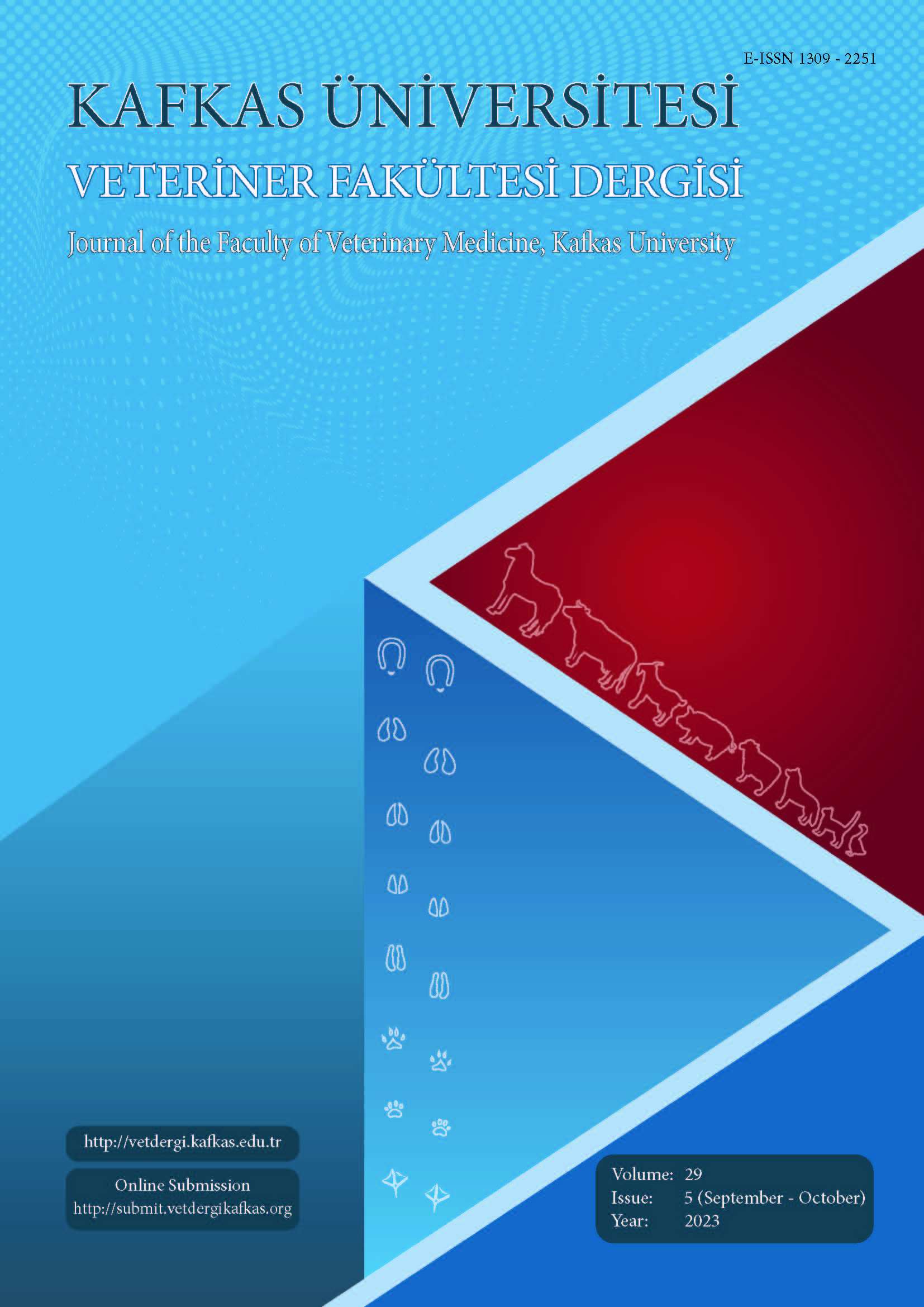Kafkas Üniversitesi Veteriner Fakültesi Dergisi
2023 , Vol 29 , Sayı 5
Effect of LED Light Color and Stocking Density on Growth Performance, Carcass, and Meat Quality Characteristics of Japanese Quails
1Aydın Adnan Menderes University, Faculty of Veterinary Medicine, Department of Animal Science, TR-09100 Aydın - TÜRKİYE
DOI :
10.9775/kvfd.2023.29874
This study was conducted to evaluate the effect of LED light color and stocking
density on the growth performance, carcass, and breast meat quality characteristics of
quails. The experiment comprised 720 1-day-old mixed-sex Japanese quails (Coturnix
coturnix japonica) randomly divided into 6 experimental groups with 4 replicates in
each group. Experimental treatments included three different LED light colors (white,
monochromatic blue, and monochromatic green) and two different stocking densities
(100 and 200 cm2/bird) in a 3x2 factorial design. The feed intake and body weight of
quails were measured weekly. At 42 days of age, 20 quails per treatment group were
randomly selected for carcass and breast meat quality characteristics analysis. Body
weight gain was significantly higher in the blue and green LED light treatments (P<0.05).
Quails reared at 200 cm2/bird significantly determined the highest body weight gain
(P<0.001). Quails reared at 200 cm2/bird had the best ratio of feed conversion ratio
(P<0.01). Breast meat yield and weight were higher in quails reared at blue LED light.
Blue LED light tended to increase the water-holding capacity of breast meat (P<0.01).
The breast meat L* value decreased significantly as stocking density (200 cm2/bird)
increased (P<0.05). However, despite the difference in pH15, pHu, and L* value of breast
meat, other meat quality characteristics were not different among the stocking density
groups. In conclusion, it is shown that mono-crop monochromatic blue or green LED
light and 200 cm2/bird floor space have a utilization effect on quail performance traits.
Anahtar Kelimeler :
LED light color, Meat quality, Performance, Quail, Stocking density











